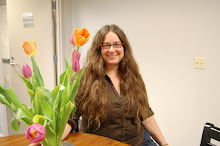Theater has been a great adventure in my life, it has conditioned my way of thinking, my way of seeing people and looking at life. But I didn't look for theater. In reality I always have been looking for something else. But I would say that my language has been formed by theater.
When I was young I asked myself what would be a possible job that would enable me to look for the other one and myself, to look for a dimension of life that would be rooted in what is normal, organic, even sensual, but that would go beyond all this, that would have a sort of axis, another higher dimension that would surpass us.strong
At that time, I wanted to study either Hinduism, to work on the different techniques of yoga, or medicine, to become a psychiatrist, or dramatic art to become a director. It was the Stalinist period, censorship was very heavy. Performances were censored, but not rehearsals and the rehearsals have been for me the most important thing. There something happened between a human being and another human being, that is the actor and myself that touched this axis beyond any control from the outside.
It means that the performance has always been less important that the work in the rehearsals. The performance had to be impeccable, but I always went back towards the rehearsals even after the premiere because the rehearsals have been the great adventure. In the end, it has been this search for the human being in the others and in myself that lead me to theater. But it could have lead me to psychiatry or to the study of yoga.
When I was young I had a professor who gave me private lessons without being paid. He was a great wise man and a specialist in Hinduism. When I began doing theater, I invited him to a performance but he refused. Why, had he refused, I asked him? He said, 'Because no matter what you do, it will transform itself into a hermitage.' Now I find myself with my present work, beyond performance and any public work, with the artists looking for this interior axis, I find myself, as he was saying, in an hermitage.
-- Jerzy Grotowski
In my tradition, there is a spiritual understanding that there are always thirty-six just men in the world. These thirty-six do nothing less than keep alive the searches and the world of God. I have no doubt that Jerzy was one of the thirty-six.
-- Bill Reichblum
One of the many stories Jerzy loved was the story of Bal Shem Tov who went to a certain place in the forest, lit a fire in a specific way and practiced a specific meditation of prayer. Over a long period of time, after his passing, the specific words of the prayer were lost. Then the specific way of lighting the fire was lost. Then even the specific place in the forest was lost. This could be perceived as a disaster, a complete break from the past. However, the lesson is that this was not the case, because at least, we still have the story.
-- Bill Reichblum
Thursday, May 12, 2005
Grotowski, 36 just men
I am reading the memorial service held in New York, in 1999, for Polish Laboratory Theatre director Jerzy Grotowski who had recently died.
Subscribe to:
Post Comments (Atom)

No comments:
Post a Comment